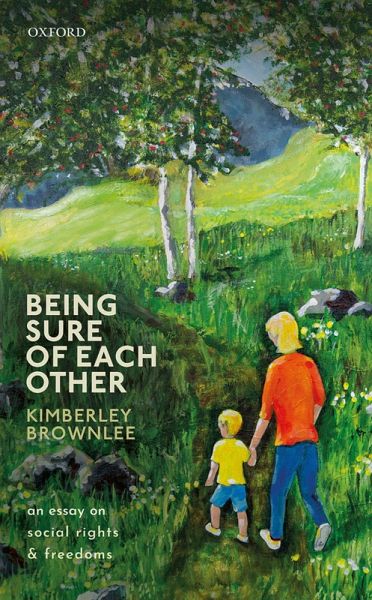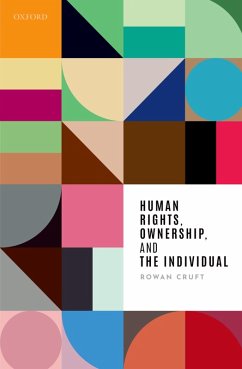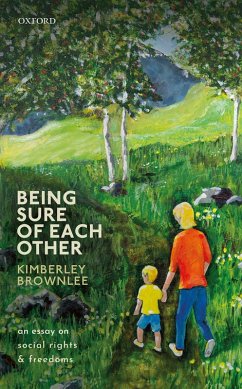
Being Sure of Each Other (eBook, PDF)
An Essay on Social Rights and Freedoms
Versandkostenfrei!
Sofort per Download lieferbar
11,95 €
inkl. MwSt.
Weitere Ausgaben:

PAYBACK Punkte
6 °P sammeln!
We are deeply social creatures. Our core social needs - for meaningful social inclusion - are more important than our civil and political needs and our economic welfare needs, and we won't secure those other things if our core social needs go unmet. Our core social needs ground a human right against social deprivation as well as a human right to have the resources to sustain other people. Kimberley Brownlee defends this fundamental but largely neglected human right; having defined social deprivation as a persistent lack of minimally adequate access to decent human contact, she then discusses s...
We are deeply social creatures. Our core social needs - for meaningful social inclusion - are more important than our civil and political needs and our economic welfare needs, and we won't secure those other things if our core social needs go unmet. Our core social needs ground a human right against social deprivation as well as a human right to have the resources to sustain other people. Kimberley Brownlee defends this fundamental but largely neglected human right; having defined social deprivation as a persistent lack of minimally adequate access to decent human contact, she then discusses situations such as solitary confinement and incidental isolation. Fleshing out what it means tothers. Our core social needs can clash with oo belong, Brownlee considers why loneliness and weak social connections are not just moral tragedies, but often injustices, and argues that we endure social contribution injustice when we are denied the means to sustain ur interests in interactive and associative freedom, and when they do, social needs take priority. We have a duty to ensure that everyone has the opportunity to satisfy their social needs. As Brownlee asserts, we violate this duty if we classify some people as inescapably socially threatening, either through using reductive, essentialist language that reduces people to certain acts or traits - 'criminal', 'rapist', 'paedophile', 'foreigner' - or in the ways we physically segregate such people and fail to help people to reintegrate after segregation.
Dieser Download kann aus rechtlichen Gründen nur mit Rechnungsadresse in A, B, BG, CY, CZ, D, DK, EW, E, FIN, F, GR, HR, H, IRL, I, LT, L, LR, M, NL, PL, P, R, S, SLO, SK ausgeliefert werden.













